Blog
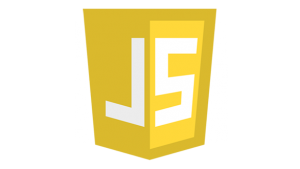
AcadeCoders Blog 2016: JavaScript (July 11th-15th, 2016)
JavaScript Welcome to the third week of the AcadeCoders session: JavaScript. This blog post will cover each daily activity of each camp day with various pictures and descriptions. JavaScript is an object-oriented computer programming language commonly used to create interactive effects within web browsers. Day 1: Monday, July 11th, 2016
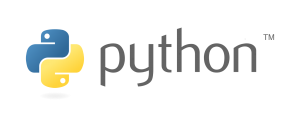
AcadeCoders Blog 2016: Python Power (July 4th-8th, 2016)
Python Power Welcome to the second week of the AcadeCoders session: Python Power. This blog post will cover each daily activity of each camp day with various pictures and descriptions. Python is an object-oriented programming language that is highly regarded for its efficiency and speed. It is well-known companies such
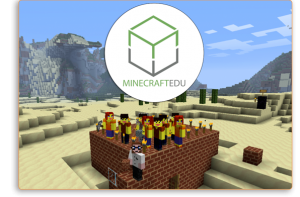
AcadeCoders Blog 2016: MinecraftEdu Turtle Code (June 27th-30th, 2016)
MinecraftEDU: Turtle Code Welcome to the first week of the AcadeCoders session: Minecraft Turtle Code. This blog post will cover each daily activity of each camp day with various pictures and descriptions Day 1: Monday, June 27th, 2016 We began the day with morning ice-breakers for the campers and instructors
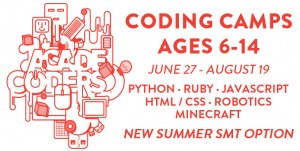
AcadeCoders 2016 Blog
AcadeCoders Blog 2016 This blog is dedicated to the daily coding challenges and camp activities for the AcadeCoders community. Parents can view the blog to see their child’s coding progress and daily activity while students can reflect on their learning experience with their fellow AcadeCoders. Click each theme below for
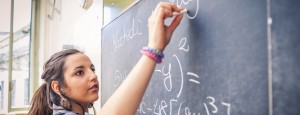
Caribou Math Contest Results
The Caribou Math Contest is an a world wide online math competition held six times throughout the school year, with different competitions for different grade groups. This year, internationally there were more than 6000 students participating in grades 3-4, more than 8000 students participating in grades 5-6, and more than
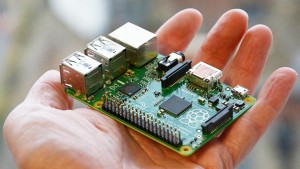
Raspberry Pi
New for AcadeCoders 2016 is Raspberry Pi, which will be part of the programming for the Robotics and Artificial Intelligence week (August 8 – 12). Raspberry Pi is a series of single-board computers that students get to manipulate through hardware and software configuration. Students will be introduced to the basics of Raspberry Pi from its
AcadeCap Teacher and Staff Blogs
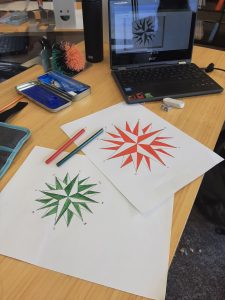
Géographie – habiletés cartographiques, direction et distance.
Et oui, la géographie c’est aussi des maths et surtout de la géométrie! Au PSSP, en classe de géographie, nous abordons de manière très concrète les problématiques de la géométrie spatiale : distance, points cardinaux, projection, … dans le cadre de notre unité sur les habiletés cartographiques, direction et distance,
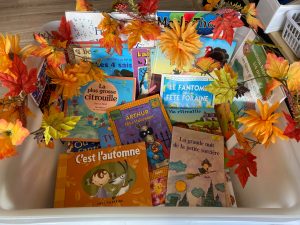
Fall Celebrations
This year, the Grade 1/2 students have a year-long unit that focuses on “Societies celebrate significant events.” Each season, students will explore what celebrations and significant events their families, and our school community celebrate. To start off this unit of inquiry, students explored a sensory bin filled with a variety
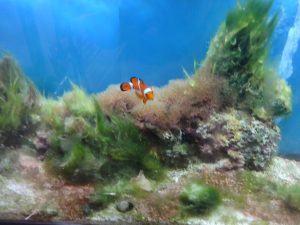
Volunteer Opportunities for OSSD Students
As part of the requirement to graduate with an Ontario Secondary School Diploma, all high school students must participate in COVID safe volunteering to collect 40 hours of volunteer experience prior to their graduation. AcadeCap has made volunteering easy this year with some volunteer roles that can be done by
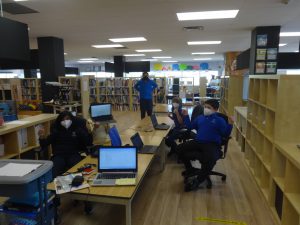
Extra! Extra! Read all About it!
The AcadeCap Chronicles is the AcadeCap school newspaper, published monthly. Our News Team researches and documents activities and events at AcadeCap. Our issues consist of feature articles, club news, comics and jokes, cartoons, photos and art, an advice column, trend watch, the game of the month, interviews, and editorials that
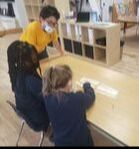
Discovering Procedural Writing
Students were given the challenge of organizing a series of sentences into the proper order. After much discussion, the groups managed to complete the instructions on how to make pancakes. The groups were then tasked with making it easier for another person to complete the puzzle in a more efficient
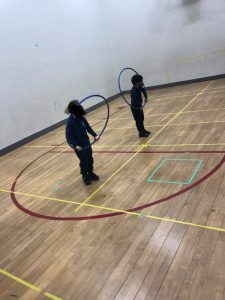
JK/SK PSPE
Hop, skip, jump, and roll! Hula hoops have a way of putting fun in motion. Young students interact in a variety of games involving large hula hoops. During these activities students are developing their motor skills and eye-hand coordination while playing variations of red light/green light, Simon says, and relay
